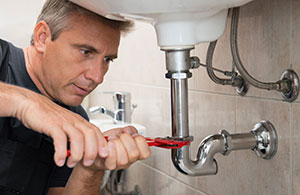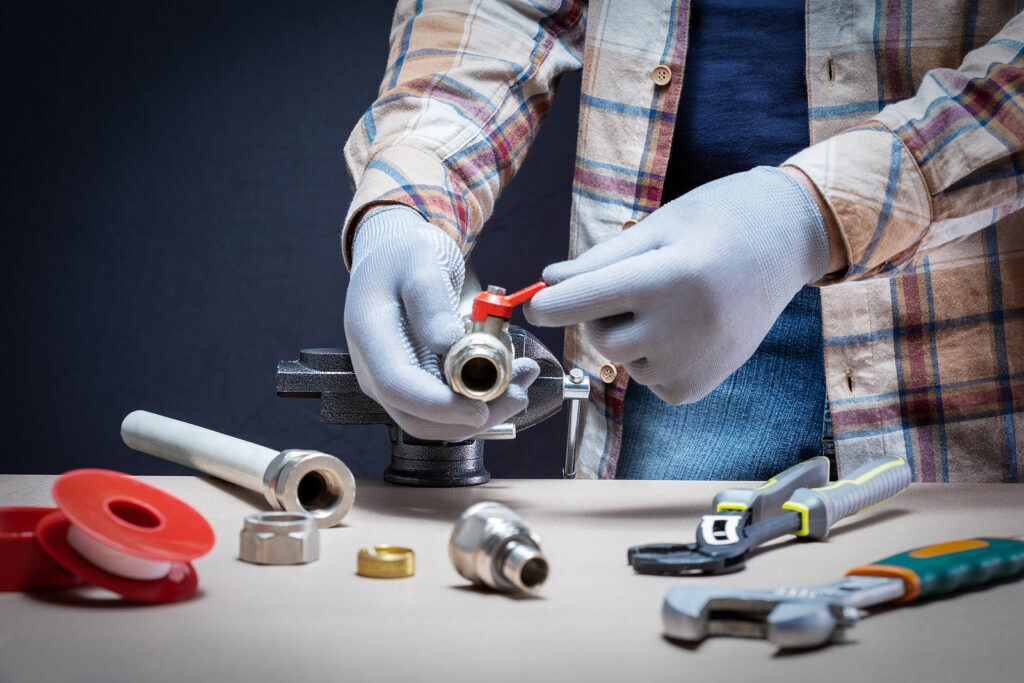Important Fixes for Emergencies: How to Until Help Arrives
Important Fixes for Emergencies: How to Until Help Arrives
Blog Article
We have encountered this great article about Expert Tips for Emergency Plumbing Repairs down the page on the internet and concluded it made perfect sense to discuss it with you in this article.

Pipes emergency situations can strike at any time, triggering anxiety and possible damages to your home. Whether it's a ruptured pipeline, a clogged drainpipe, or a dripping tap, recognizing just how to take care of the scenario till a professional plumbing professional arrives can save you from additional issues. This write-up gives essential emergency plumbing suggestions to assist you minimize damages and reclaim control during a plumbing crisis.
Turn Off the Supply Of Water
The initial step in any pipes emergency situation is to shut down the water supply. For localized issues, such as a leaking faucet or toilet, turn off the valve near the fixture. In the case of a major leak or ruptured pipeline, situate your home's major water shut-off valve and turn it off right away. Understanding the area of these shutoffs ahead of time can save valuable time during an emergency.
Address Small Leaks with Short-term Repairs
Little leakages can swiftly come to be considerable issues if left untreated. Make use of these short-lived solutions till specialist aid gets here:
While these solutions aren't irreversible, they can assist lessen water loss and damage.
Unclog Drains Safely
A clogged drainpipe can be an irritating and unpleasant concern. Right here's exactly how to tackle it:
If these methods do not function, avoid using too much force, as it may get worse the obstruction.
Manage Overflowing Toilets
An overruning bathroom can trigger immediate disorder. Right here's what you should do:
Turn off Your Water Heater
In specific emergencies, such as a ruptured pipeline, it's wise to shut down your water heater. This prevents getting too hot or damage to the device when water stops moving. Shut off the power supply to the water heater (electrical or gas) and let it cool to avoid possible risks.
Briefly Stop a Burst Pipeline
A ruptured pipe can cause significant water damage in mins. To mitigate the problem:
Call an expert plumbing professional immediately to deal with the trouble completely.
Handle Frozen Pipeline Very Carefully
In cooler climates, frozen pipes are a typical emergency situation. If you suspect a frozen pipe:
Prevent More Damage
Taking quick action to reduce damage can save you time and money over time. Right here's exactly how:
. Have an Emergency Situation Pipes Package
Prepare a standard pipes emergency situation package to handle minor issues effectively. Your kit ought to include:
Having these devices accessible can make a significant distinction in your capacity to take care of emergency situations.
Know When to Call a Specialist.
While quick fixes can aid temporarily, certain pipes concerns call for prompt specialist interest. Call a plumbing technician if:.
Without delay calling a professional ensures the concern is settled appropriately and stops additional problems.
Conclusion.
Pipes emergency situations can be overwhelming, yet with the best expertise and tools, you can manage the circumstance effectively till help gets here. By turning off the water system, resolving little leakages, and utilizing short-lived repairs, you can lessen damages and keep your home safe. Bear in mind, these suggestions are momentary services; always seek advice from a licensed plumbing technician to manage the origin of the problem. Preparation and fast reasoning are your ideal allies in any pipes emergency.
8 Helpful Tips for Managing Plumbing Emergencies at Home
If your plumbing system hasn’t failed once, wait for it because almost everyone has a story to tell. Sometimes, it could be simple emergencies such as a leaking pipe, a blocked cistern, or even a big burst pipe. In situations like this, you need to have some handy tips to save you some money and from possible damages.
Take care of minor issues early.
Sometimes, you could have avoided an emergency by taking proactive measures while it was still early. Some major plumbing emergencies can be a result of an ignored minor issue. We recommend that you have items like plumbing tapes and other related items. A plumbing tape can allow you to manage minor leaks before the plumber arrives.
Cut off the water supply.
This tip is essential in almost any type of leakage problem. For problems like minor leakages in the toilet or kitchen, turn off the supply that takes water to the affected pipes. If the leakage is a major pipe, you must shut off the supply valve to the entire building. This will help you avoid flooding your home and neighbors if you share a flat.
Know your plumbing system
Folks typically move into a new apartment without understanding the water supply around the building. This can prove disastrous if a water emergency arises and the plumber is far away. The previous tip will prove useless if you don’t practice this one. More importantly, know where your water shut-off valve is located – you’ll need that knowledge to prevent potential home floods.
Have some common handy tools
There are lots of plumbing emergencies that you can handle without hiring a plumber. That’s why you must keep some tools available always. Some tools that you can use to fix simple plumbing emergencies easily include plumbing tapes, screwdrivers, thread seal tapes, plungers, pliers, tape measures, and rubber gloves.
Insulate your pipes from cold
You’ll save yourself from many plumbing expenses if you protect your water pipes from the cold. This is because of the harmful effects that cold weather can have on your pipes. During winter, your pipes can burst from being overly expected to freezing temperatures. So, make sure insulators are there to keep the pipes working correctly.
Avoid practices that will clog your toilet.
Many people indulge in practices that can damage the plumbing system of the entire building. One of these is when they use their toilet to dispose-off garbage. They flush all kinds of things, such as paper towels, bandages, hairs, female sanitary products, etc., down the toilet. This will block your toilet in the long run, incurring unnecessary expenditures. Dump such waste in the trash instead.
Check your dials regularly.
Sometimes, there could be leakages in your home without noticing them in time. So, constantly monitor your water meter dial. If the dial is reading when there is nobody using water, this is an indicator that there is leaking. Check for leaks immediately. Call a plumber as soon as possible if you can’t find any.
https://www.constructionplacements.com/8-helpful-tips-for-managing-plumbing-emergencies-at-home/

We had been shown that report on Plumbing Emergencies: Tips on What To Do Before from a friend on a different domain. So long as you appreciated our blog posting please do not forget to share it. I take joy in your readership.
Book Report this page